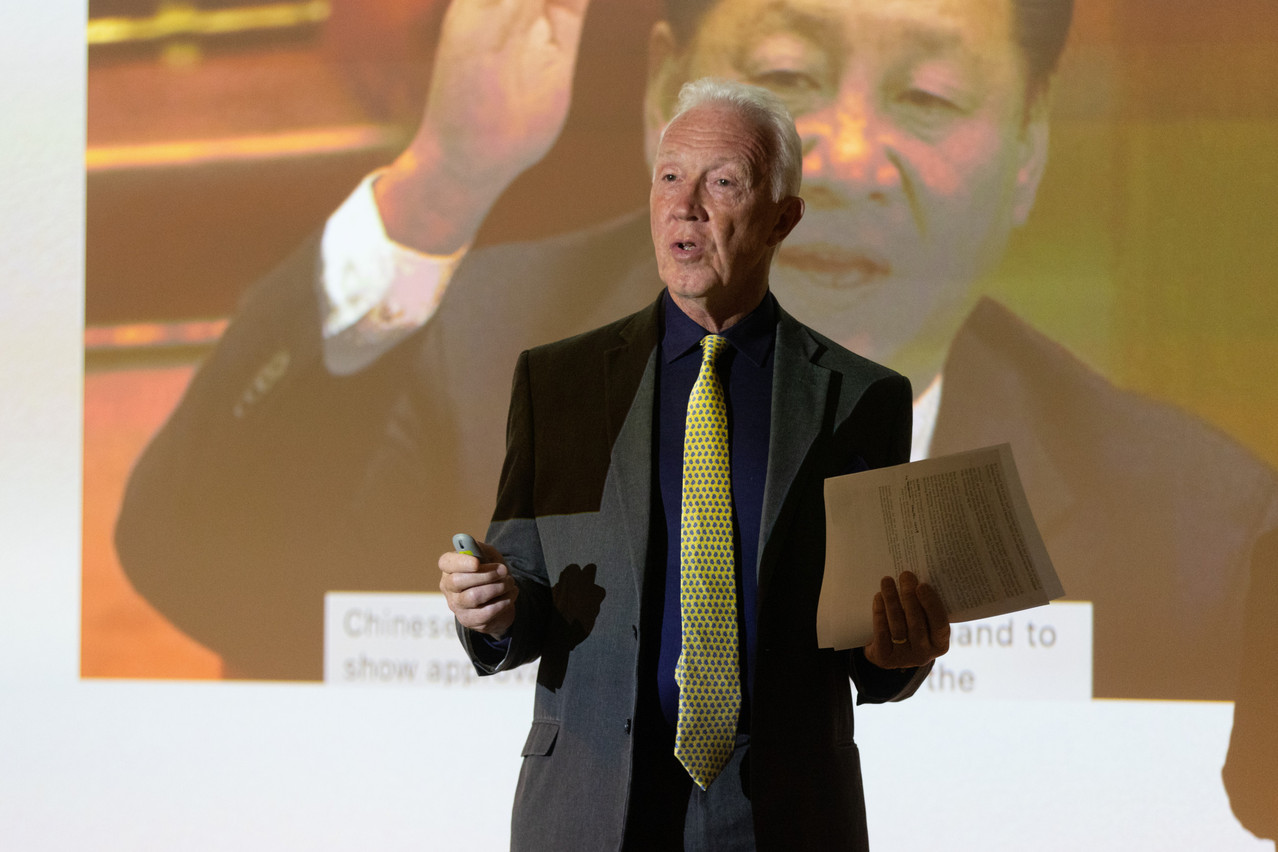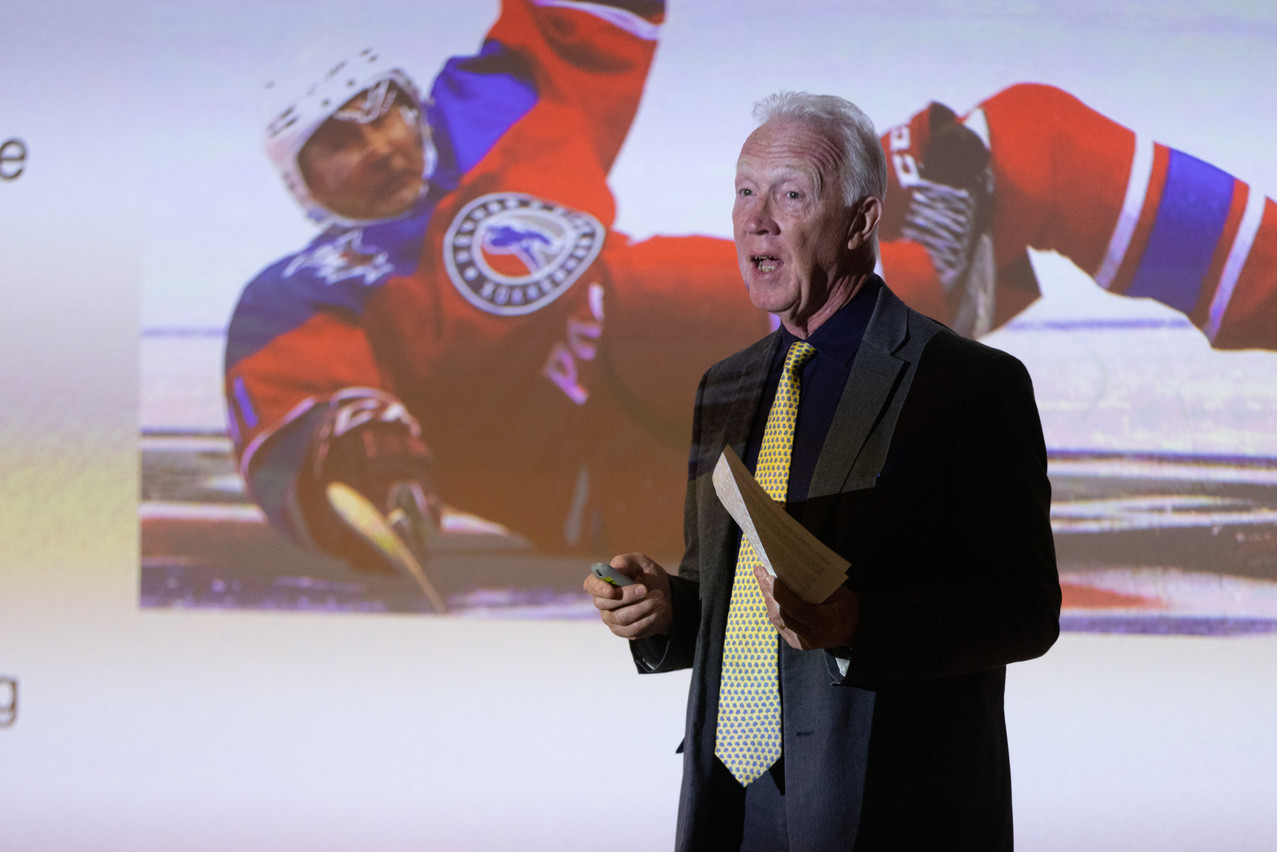Alastair Newton was invited by the Luxembourg Financial Markets Association (LFMA) to share his geostrategic analysis at the. A former diplomat for the British Foreign Services, he was involved in intelligence coordination--notably during the first Gulf War--and headed the diplomatic team at 10 Downing Street for the G8 summits. He entered the world of finance through a secondment from the diplomatic service at Lehman Brothers in the early 2000s, and then left the public service to take up the position of senior political analyst at Nomura International from 2008 to 2015. Since then, Alastair Newton has co-founded the company, Alavan Business Advisory, which specialises in geopolitical risk analysis and advice.
In your speeches, you establish a causality between the end of hegemonies and the current global economic crisis. Can you explain this to us?
Alastair Newton. - The definition of a geopolitical cycle revolves around a period of hegemony, that is, when a power controls a large part of the world's economy, apart from its own. Imperialism is a classic example. The British Empire was a hegemony. Since its decline, we have lived in a world of American hegemony. And the corollary of that is that when the hegemony comes to an end, what happens is exactly what we are experiencing today: increasing trade barriers, disruptions in supply chains and so on. We see economic growth slowing down, sometimes even reversing. We are also seeing a rise in nationalism.
Vladimir Putin's decision to invade Ukraine is a very clear example of Russia entering a period of decline.
The reality is that in a significant number of cases of the end of a hegemony, the declining power has started a war in order to try to secure its primacy, and very often it has come out badly. And, in my opinion, Vladimir Putin's decision to invade Ukraine illustrates very clearly that Russia is entering a period of decline.
In this context, how do you assess the West's sanctions against Russia?
Financial sanctions are not irrelevant. At least, if we got an effective embargo on the sale of Russian hydrocarbons, it would have a significant impact. Russia still makes a lot of money selling oil on international markets. If there was an effective cap mechanism, if insurance was stopped on ships carrying Russian oil, it would have an impact. But it still won't be enough to crush the whole Russian machine. What would really make a difference is the paralysis of the country's manufacturing and extraction capacity. Russia simply will not be able to extract oil and gas from the ground without Western technology. Extraction is done either by Western companies bringing the technology with them, or by buying the technology from Western countries.

Alastair Newton believes that China's ability to overcome potential Western sanctions would lie in foreign trade transactions denominated in renminbi rather than dollars. (Photo: Guy Wolff/Maison Moderne)
On its own, Russia simply cannot do this. It will not, for example, be able to drill in the deep waters of the Arctic without Western technology. In such a case, their means of production would gradually be completely stifled. You add to that the fact that Western companies are pulling out and bringing their technology home. There are also about 150,000 of the best and brightest Russians who have left the country since the war started. This is going to have a pretty big and negative impact on the Russian economy. But it will take time, let's be clear about that. Russia is not North Korea.
If there was an effective cap-and-trade mechanism, if insurance was cut off on ships carrying Russian oil, it would have an impact. But it still won't be enough to crush the whole Russian machine. What would really make a difference is the paralysis of the country's manufacturing and extraction capacity.
Could the intensity of Western sanctions against Russia be a deterrent to China's desire to conquer Taiwan?
I think it has for now, but the Chinese will be preparing to try to overcome a similar wave of sanctions to the one imposed on Russia. To do that, the most important thing for China is to get away from its dependence on dollar-denominated transactions for its foreign trade. This is where the Russians have really taken a hit. But I think the Chinese now understand that they will never get the renminbi (the official name of the Chinese currency, for which yuan is the unit) in paper form to be an alternative to the US dollar. So China has to prepare even more before it can defend itself against such a sanctions regime.
This story was first published in French on . It has been translated and edited for Delano.


